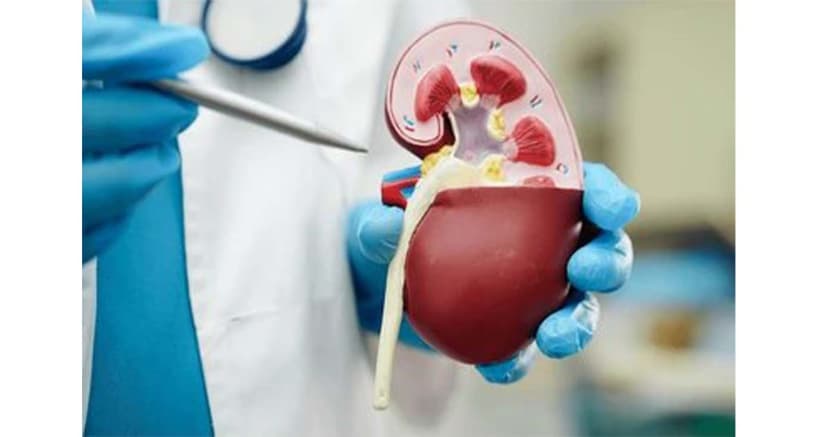5 Common Dental Problems and How to Prevent Them
By:

Apex Hospitals
05-06-2024

Have you ever dreamed of flaunting a dazzling smile that lights a room? Achieving that radiant grin starts with understanding the common pitfalls that can turn a bright smile into a painful grimace. From cavities to gum disease, our teeth face many challenges that can be daunting but are manageable with the proper knowledge and habits. This guide will uncover the five most common dental problems and give you practical tips to prevent them. Get ready to smile confidently, knowing your teeth are in top-notch shape!
1. Tooth decay
Tooth decay, also known as dental cavities, is the most prevalent health issue affecting everyone at some point. This widespread problem is widespread among individuals lacking regular dental care access. Tooth decay occurs when bacteria form a film called plaque on the surface of teeth. When plaque combines with sugars and starches from the foods you eat, it produces acids that attack tooth enamel, the outer protective layer of your teeth. Over time, these acids erode the enamel and damage the softer dentin layer underneath, leading to cavities or holes in your teeth.
Tooth decay can strike at any age—not just children. Symptoms include toothaches, sensitivity to hot, cold, or sweet foods, bad breath, black or brown spots on teeth, and an unpleasant taste in the mouth. If left untreated, tooth decay can lead to more severe dental issues, requiring fillings, crowns, root canals, or tooth extraction followed by implants or dentures.
Preventing tooth decay is straightforward: brush your teeth twice daily, floss daily, and get regular dental check-ups to remove plaque. Additionally, maintain a healthy diet and avoid high-sugar snacks and drinks. Regular dental visits and good oral hygiene practices are essential to keeping your teeth healthy and preventing the pain and complications associated with tooth decay.
2. Gum disease
Gum disease, also known as gingivitis in its early stages and periodontitis in its advanced form is a common infection of the gums surrounding your teeth. It is a leading cause of adult tooth loss. Most prevalent after the age of 30, gum disease can affect anyone, though smoking, diabetes, and dry mouth significantly increase the risk.
1. Gingivitis:
Gingivitis, the initial stage of gum disease, is a mild bacterial infection caused by plaque buildup. Symptoms include red, swollen, tender, bleeding gums, bad breath, sensitive teeth, and chewing pain. Often, gingivitis can be painless, making regular dental check-ups essential for early detection.
Preventing gum disease involves consistent oral hygiene practices: brushing twice daily, flossing regularly, and visiting your dentist for check-ups and cleanings. Poor brushing techniques and neglecting oral care can lead to gingivitis, as can other risk factors like tobacco use, pregnancy, and diabetes.
2. Periodontist
If left untreated, gingivitis can progress to periodontitis, a more severe gum disease where pockets in the gums become infected, potentially damaging the bone and tissue supporting the teeth. This can result in shrinking and receding gums, loose permanent teeth, changes in bite, persistent bad breath, and an unpleasant taste in the mouth. Periodontitis can also trigger an inflammatory response throughout the body.
Treatment for gingivitis includes professional dental cleanings and improved at-home oral care. For periodontitis, dental care might involve topical antibiotics to combat the infection or a referral to a periodontist, a specialist in gum disease. Maintaining good oral hygiene and regular dental visits are vital to preventing and managing gum disease, ensuring your teeth and gums stay healthy.
3. Bad Breath
Bad breath, or halitosis, is one of the most common and distressing dental problems. This condition can arise from various causes, including poor oral hygiene, dry mouth, medications, infections, acid reflux, and even cancer. Foods such as garlic and onions are also frequent culprits. Studies indicate that a dental condition is to blame in about 85% of persistent bad breath cases. These conditions include gum disease, cavities, oral cancer, dry mouth, and bacteria on the tongue.
The varied causes of bad breath necessitate a thorough assessment by your dentist, who can prescribe a tailored treatment plan. While mouthwash can temporarily mask the odour, it does not address the underlying issues. If you suffer from chronic bad breath, you must visit your dentist to effectively identify and treat the root cause.
Maintaining good oral hygiene is essential in preventing halitosis. This includes brushing twice daily, flossing regularly, and keeping up with dental check-ups. By addressing the underlying causes, you can manage bad breath and improve oral health, ensuring fresh breath and confidence in social interactions.
4. Oral cancer
Oral cancer is a severe and potentially deadly disease that affects millions of people, becoming more common after the age of 40.
Several risk factors contribute to the development of oral cancer, including smoking or chewing tobacco, alcohol use, human papillomavirus (HPV) infection, poor nutrition, and genetic syndromes. Recognizing the symptoms is crucial for early intervention. These symptoms include persistent sores, lumps, rough areas in the mouth, changes in your bite, and difficulty chewing or moving your tongue or jaw.
Regular dental visits play a vital role in the early detection of oral cancer. Ask your dentist if an oral cancer exam is part of your routine checkup. Early detection and prompt treatment are crucial to combating this deadly disease, making proactive dental care essential to maintaining your overall health.
5. Tooth Sensitivity
People with sensitive teeth often experience discomfort and pain when consuming hot or cold foods and drinks. Tooth sensitivity, or dentin hypersensitivity, occurs when the enamel protecting the teeth is damaged or worn away, exposing the underlying dentin. This exposure allows substances to reach the nerve endings through the tiny tubes in the dentin, leading to intense pain.
Several factors can contribute to tooth sensitivity, including tooth decay, gum disease, root infections, cracked or broken teeth, worn-down crowns or fillings, enamel erosion, and receding gums. Additionally, some individuals may have naturally thin enamel, making their teeth more susceptible to sensitivity.
To manage tooth sensitivity, using oral hygiene products specifically designed for sensitive teeth, such as special toothpaste and mouthwashes, can provide relief. In more severe cases, your dentist might recommend treatments like fluoride applications, crowns, gum grafts, or root canals, depending on the underlying cause and extent of the sensitivity.
Regular dental check-ups and proper oral hygiene are essential in preventing and managing tooth sensitivity, ensuring you can enjoy your favourite foods and drinks without discomfort.
Dental problems can significantly impact your self-confidence, general health, and overall quality of life. If you notice any signs of common dental issues, don't hesitate to contact Apex Hospitals. Early treatment is crucial, and our team is ready to assist you. Additionally, regular dental care is essential to prevent these problems from arising. At Apex Hospitals, our dental professionals help you maintain optimal dental health and address concerns. Contact us today to schedule an appointment and keep your smile healthy and bright.
FAQS
Related Articles
Connect With Us
Health In A Snap, Just One App.
KNOW MORE



































































































